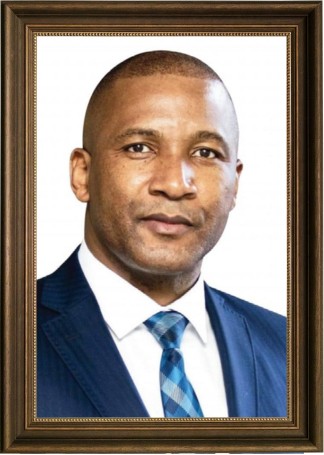
Introduction
President Advocate Duma Gideon Boko – President of the Republic of Botswana – was appointed as chair of the African Leaders Malaria Alliance in February 2025.
The President of the Republic of Botswana becomes ALMA’s ninth chair. He takes over from His Excellency President Umaro Sissoco Embaló, of the Republic of Guinea-Bissau who served as chair from September 2022 to February 2025.
The world is watching, and history will judge us by how we respond to this challenge. Let us seize this moment and work together to ensure that malaria elimination becomes a reality for our continent.
President Advocate Duma Gideon Boko, President of the Republic of Botswana and ALMA chair
His Excellency’s priority agenda
President Advocate Duma Gideon Boko continues the inspiring progress made under the previous ALMA chairs through his priority agenda.
This game-changing agenda addresses major challenges in the battle against malaria. These challenges include the insufficient engagement of women, children and youth, a lack of funding from the domestic, public and private sectors, as well as the threat of donor funding stagnating.

Digitalisation and real time data
Aim
Provide real time access to malaria-related data at country level to enhance malaria prevention and elimination efforts by using country scorecard tools and the ALMA Scorecard Hub – an innovative website providing countries and partners with access to scorecard data, best practices from fellow countries and guidance on how to create and strengthen national scorecard tools.
About this priority
Supporting digitalisation and real time data will help:
- facilitate strategic decision-making
- target resources to drive down malaria cases and deaths promote and leverage the existing research and development sector on the African continent
- enhance the sharing and expanded access to the country malaria scorecard tools, allowing all citizens – in all spheres of life and at all levels – to be aware of their malaria situation and be empowered to act
Engagement with Regional Economic Communities in Africa
Aim
Work with Africa’s Regional Economic Communities to engage Heads of State and Government to address key challenges and provide solutions in the fight against malaria.
About this priority
Engaging with regional economic communities will help:
- introduce regional scorecard tools for review and action by Heads of State and Government
- share lessons learned and best practices and create awards for excellence to recognise good performance at regional level
- keep malaria high on the political and technical agenda
End Malaria & NTD Councils and Funds
Aim
Establish national End Malaria Councils and Funds across the continent to mobilise additional domestic public and private resources and engage country leaders.
About this priority
End Malaria & NTD Councils and Funds boost high-level, multi-sectoral engagement and advocacy at country level, while increasing domestic public and private resource mobilisation. In some countries, these councils and funds also address neglected tropical diseases.
Youth engagement
Aim
Create a continental malaria youth corps and national malaria youth corps to work with existing youth leaders across the African continent to champion youth engagement and resource commitments for malaria elimination.
About this priority
Our youth engagement will:
- promote innovation, research and development
- create a group of malaria advocates and champions
Pandemic preparedness and response
Aim
Use malaria as a pathfinder for key elements of pandemic preparedness and response.
About this priority
Countries can improve their pandemic preparedness by investing in malaria prevention, testing and treatment as it can lead to:
- expanded community health worker programmes
- enhanced digital tools for disease surveillance and detection
- increased the capacity of national laboratories
- improved supply chains and logistics for health commodities
- implementing standard operating procedures to respond to outbreaks in real-time